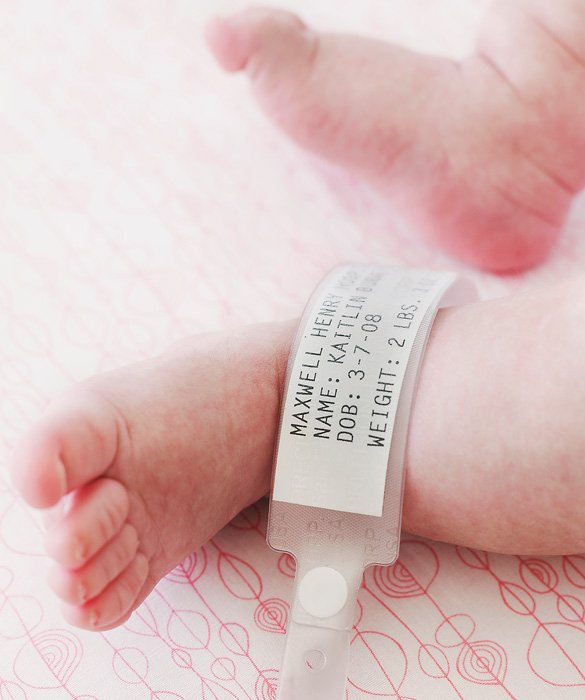Expect the Unexpected

As expectant parents, you try to be prepared for the big day. You read books on childbirth and create a birth plan that is exactly right for you. Despite your best efforts, however, it's unlikely that things will go exactly the way you envisioned it—and that's OK! We asked Dr. Eleanor Oakman, an ob-gyn with Roper St. Francis Healthcare in Charleston, S.C. to weigh in on 10 unexpected twists and turns your delivery day could take.
Can’t Get an Epidural

If you have zero interest in going through childbirth drug-free, the thought of not getting an epidural might sound horrifying. While it doesn’t happen often, there are a few reasons it could. Your care provider may discover that you have low platelets when you get to the hospital, which would make you ineligible for an epidural. Or it may be a timing issue. Doctors need about 20 minutes to place the epidural, and it takes another 10 to 20 minutes to take effect, so if you’re too far along in labor, you may be out of luck. If you’re at a small hospital, there may only be one anesthesiologist stuck in a cesarean section or another procedure. If you’re dead-set on an epidural, let your doctor and nurses know when you arrive so they can help to ensure someone will be available.
LISTBLISS: Weird Pregnancy Symptoms
Epidural Doesn't Work

You ask for an epidural and get it. All is good, right? Usually yes. But on occasion, they don’t work, or they don’t work correctly. Oakman says some women’s backs are more difficult to penetrate than others, sometimes the epidural could move and slip out of place or it could be placed unevenly, causing the pain relief to be a little one-sided. Your labor and delivery team will do everything they can to rectify the problem: helping you get in a position that provides better pain relief from the epidural, increasing the medication, adding additional medication through an IV or even redoing the epidural. But it’s always good to remember the relaxation, breathing and other pain relief skills you learned in childbirth class just in case.
RELATED: The 411 on Prenatal Tests
Partner Not There

You and your partner have been preparing for labor and delivery together and you're counting on that person being there. They can't miss the birth, right? Wrong. You could go into labor a few weeks early and your partner could be away on a business trip, or your labor could progress so quickly you might have to rush to the hospital alone. Even if you are together, it's not unheard of for a birthing partner to pass out! Don't worry. There will be plenty of nurses around to help. No matter what happens, it's always good to have a backup labor support person ready to go just in case, whether it's a family member or a best friend.
Fetal Monitor Goes Off

A fetal heart monitor tracks your baby’s heart rate and allows doctors to watch for dips and changes that might indicate fetal distress. If it goes off, it might be because the baby isn’t getting proper blood flow due to a compressed cord—or that the placenta isn’t working well due to hypertension, diabetes, low fluid, maternal anemia or placental abruption. Fetal heart monitors can also go off after an epidural, since that relaxes the nervous system and can cause a drop in blood pressure. For some women, however, the effect may be more extreme than for others. This post-epidural drop may throw the baby into distress, causing his heart rate to drop and the fetal monitor to go off, says Dr. Oakman. Hospital staff may come rushing into your room to help. While the situation may be alarming, usually your baby is back to normal in no time.
You Need a C-Section

Considering 30 percent of pregnant women in the U.S. end up having a C-section, having one shouldn’t surprise you too much. Even so, many moms refuse to think about the possibility until their caregivers say it’s a must. If your labor isn’t progressing, the baby is in a breech position or it’s determined that the baby’s head or body is too big for the birth canal, you may need an unplanned C-section. Prepare yourself for the possibility now by reading up on what to expect during and after giving birth by cesarean.
You Go Under

While the majority of C-sections are performed with a spinal block or an epidural so that you can stay alert during the surgery, emergency situations sometimes require general anesthesia because of a lack of time—such as the baby being in fetal distress, the umbilical cord entering the birth canal before your baby or the occurrence of placental abruption. Being put to sleep quickly—within 10 to 15 seconds once the IV starts—can be very scary if you’re whisked away in a rush and your partner can’t be with you. Luckily, the likelihood of needing general anesthesia is rare. However, if you are put under, you can expect to be woken up immediately following the birth, though you may not remember the first 20 to 60 minutes after surgery, says Dr. Oakman. You can also expect to feel more tired and groggy, compared to an epidural or spinal block.
Doctor Unavailable

You chose a doctor or midwife practice that has several practitioners and met all of them. Throughout your nine-month journey, they assure you that one of them will always be on-call. Yet, you may still show up to the hospital to discover none of them are available. Sure it’s disheartening to hear they all went on vacation at the same time, but luckily there’s always an on-call doctor at the hospital, so your baby won’t go undelivered. This is why you should pack extra copies of your birth plan in your hospital bag, since the on-call doctor may not have easy access to it in your medical records. Take a moment to go over your birth plan with the doctor and if there is something very important to you, bring it up, says Oakman.
RELATED: Baby's First Tests
Didn't Get to a Hospital

Surely you’ve heard stories of women giving birth on the subway or the side of the highway on the way to the hospital. The chance of it happening to you is unlikely. But in the rare event that it does happen, always call 9-1-1, or have someone call for you. “Only push if you think the baby is coming out and you can’t stop from pushing,” says Oakman. “You can use your hand to feel if there is a head coming out, or have your partner look.” If your baby does arrive before help gets there, the important thing to remember is to dry your baby off, make sure he’s crying and don’t attempt to cut the cord yourself. After the paramedics come, they’ll bring you to the hospital for placental delivery and a checkup.
RELATED: Craziest Delivery Stories
Baby Gets Stuck

Though it’s very uncommon, on occasion, your baby’s shoulder or shoulders may get stuck on the way out of the birth canal. Referred to as shoulder dystocia, this rare conundrum is more common with larger babies, small moms and gestational diabetes. When it happens, you can expect the practitioners to execute a variety of quick maneuvers to get the baby moving as fast as they can, which usually involves a lot of pushing on the pubic bone.
It Comes out All Ends

Childbirth is a messy process, and beyond the blood and bodily fluids of delivery that you’re expecting, a few other excrements might surprise you. It’s not uncommon for all that pushing to result in a bowel movement on the delivery table. While it may seem embarrassing, labor and delivery staff have seen it all before, hundreds of times, and they’re prepared to whisk away any excrements the second they appear. Also, whether it happens due to the epidural or the pure intensity of childbirth, many moms feel nauseous and vomit during childbirth as well. While it's far from enjoyable, just remember it's totally normal and nothing you should worry about.






